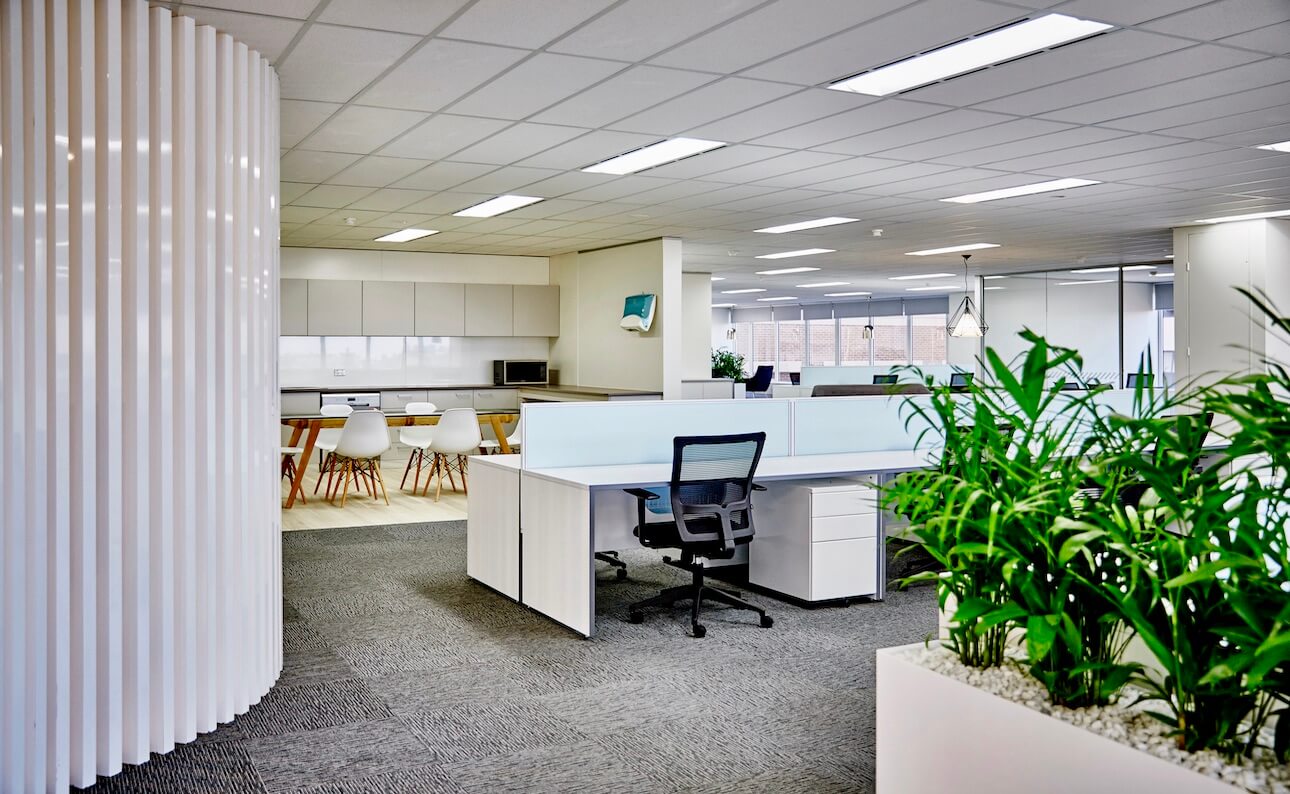
How to Hot Desk: 4 insights to make hybrid working a success
Hybrid working has become the new normal for millions of workers across the globe. And as colleagues split their working days between the office and the home, the rise of the hot desk has started to take shape.
A recent study found that 73% of employees want flexible remote work options to stay. It’s why businesses are stripping back their main headquarters in favor of hot-desking. Workers simply arrive at the hybrid office, go to a pre-booked ‘hot desk,’ log in, and begin working.
A successful hot desking strategy requires a good plan and the right tools. Without this, every day could turn into a game of musical chairs. Thankfully, that’s easy to avoid — here’s how to make hot-desking work in your hybrid office.
It’s all about desk-hotelling
Hot-desking and desk hoteling are similar concepts, but what’s the difference?
Hot-desking is more first-come-first-served based. Employees simply turn up, find an available desk, and sit down to work. This is fine for smaller businesses but can become quite chaotic for larger organizations. That’s why we always recommend a desk hoteling strategy instead.
Think of desk-hoteling as hot desking with manners. Instead of turning up and simply hoping to find an available desk, employees pre-book a desk or room in advance with an office scheduling tool like Smartway2. This way, employees can start their day’s work easily instead of scrambling to find a desk.
Choose the right software
To implement desk-hotelling in your hybrid office, you’ll need software that optimizes and simplifies the desk-booking process.
Let’s take a closer look at some key features your software should include.
Integrations with other tools
Desk-booking software is even better when it integrates with other tools in your tech stack.
Here are some to look out for.
Email integration
So much of our working day is spent in our email inboxes. In fact, 2022 will see an estimated 333.2 billion emails sent — that’s a lot of emails!
Having a desk-booking tool that integrates with popular email tools like Gmail or Outlook will let employees keep on top of their schedules and keep track of where they’ll be sitting when they come into the office.
Visitor management software
Visitor management software lets businesses track who has entered or left the office building in real-time. This is great for keeping tabs on capacity and ensuring guests are welcomed when they arrive for interviews and meetings.
Space management platforms
Effectively managing space is crucial for hot-desk offices with limited space and frequently changing capacities.
Integrating your desk-booking system with a space management tool helps you optimize the workspace by automatically blocking off occupied desks, workstations, or unavailable meeting rooms.
Easy to use
The transition to hybrid setups and hot-desking models is difficult enough, so your chosen software needs to be easy to use to avoid problems.
Your desk-booking software should:
- Have a friendly user interface. It should become second nature to employees.
- Offer self-service. Give employees complete control of their desk-booking schedule.
- Solid functionality. Desk-booking software is only helpful if it does what you need it to do.
Mobile-friendly
Everyone carries a smartphone these days — for most people, it’s their primary device.
That’s why a mobile-friendly desk-booking tool is useful when employees need to make a last-minute booking on the move. Employees can simply book a desk on their way to work and go straight to it when they arrive at the office.
Workplace analytics
Hybrid offices are fluid, flexible, and often unpredictable. This can make it more difficult for managers to plan and optimize the workspace.
But with workplace analytics, managers can keep track of employee behavior patterns and use data-backed insights to optimize the workspace. With AI at the wheel, today’s tools can identify the most popular office areas and the busiest times of day, among other key insights.
Not only will analytics help you keep the office optimized and organized, it’ll also eliminate common hot-desking problems like ghost bookings and no-shows by automatically releasing available desks back into the booking system.
All these software features are crucial for running a successful hybrid workplace. Thankfully, innovative tools like Smartway2’s workplace scheduling software bring them together in one handy package.
Teach employees hot-desking etiquette
Just because hot-desking offers a more flexible and relaxed approach to working doesn’t mean etiquette should disappear. If you notice employees slacking when it comes to their manners and behavior, it’s time to give them a gentle reminder of their hot-desking etiquette.
To maintain good etiquette, employees should:
Treat every desk like it’s their own
No one wants to arrive at their pre-booked desk to find pizza boxes and empty coffee cups from the previous person. Employees should treat their booked desks like they’d treat their own. If the desk was immaculate when they arrived, it should be when they leave.
Use the desk-booking system
The desk-booking system is there for a reason and turns hot-desking hell into desk-hotelling heaven. If employees are turning up without using the booking system beforehand, things will quickly become unorganized and impractical. So, ensure employees use your desk-booking system and give them a nudge if they’re not.
Avoid hogging desks or expecting others to relocate
Another common hot-desking problem is employees hogging the same desk or expecting other employees to move elsewhere. This causes problems not only on a personal level but also for collaboration if specific teams need to work together in the same location.
Your desk-booking software should contain a map that shows employees which sections are reserved for collaborative work and which areas are free for them to use.
Don’t leave your belongings lying around
Phone chargers, empty food packets, coats, or even sweaty cycling attire! No one wants to climb over your belongings, especially in a shared office space. It’s a health and safety hazard and could cause injury or, at the very least, ruin the office experience for other employees. Encouraging everyone to keep things neat and giving employees a space like lockers to keep their personal belongings will go a long way toward a tidy office!
You can check some more of our hot desking etiquette dos and don’t here.
Use your space wisely
With hybrid setups allowing more people to work from home, you’re likely to have more space in the office. By using the extra space, you can create an environment that inspires employees and enables them to collaborate easily with their coworkers.
Remember, the office should be a place employees want to visit. It shouldn’t be a vast, soulless space, nor should it be an overcrowded mess. Applying a hospitality mindset to your office redesign is a good strategy. This approach will help workplace experience managers provide what employees want while simultaneously empowering them to remain hard-working and productive.
You can find more tips on planning your office space for hybrid working on our blog.
Smartway2 — workplace scheduling made easy
With Smartway2’s advanced technology, you can implement an efficient desk-hotelling strategy that’ll help you avoid common mishaps. We take an automated, data-driven approach to hybrid scheduling, letting businesses and employees arrange anything from single desk bookings to whole office spaces.
With Smartway2, you’ll see how data-driven workplace scheduling software can transform your business:
- Say goodbye to desk and meeting room booking mix-ups.
- Make bookings for desks, rooms, equipment, and catering from any device.
- Optimize your workspace utilization to reduce real estate costs and boost collaboration.
- Create the perfect hybrid environment for collaboration with the best tools for the job.
See how we can help you transform your workspace with a demo today!


